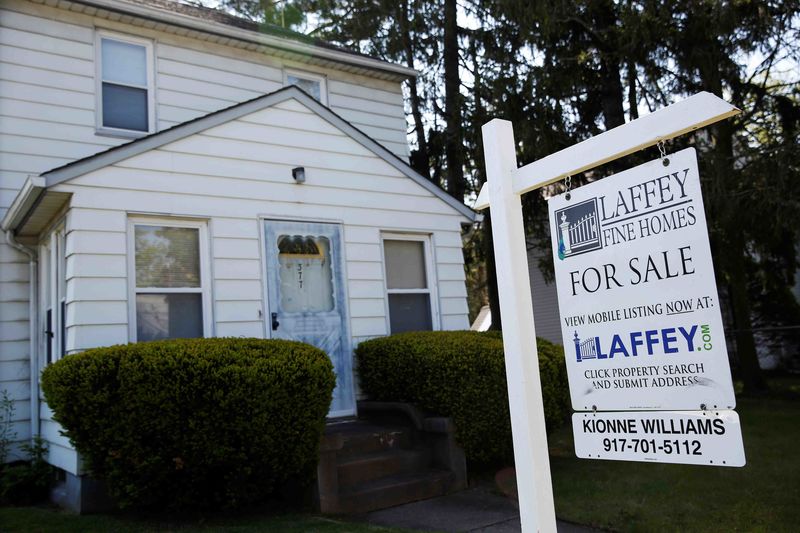(Bloomberg) -- Democratic presidential hopefuls accustomed to viewing the housing crunch as a back-burner issue will be in one of the epicenters of the crisis on Thursday.
Indeed, a drive around California may be an eye-opener for some of the candidates taking the debate stage in Los Angeles. The housing crisis is so severe in Oakland that a city council president has proposed turning a cruise ship into temporary housing, while a Sonoma County homeless camp with hundreds of residents stretches more than a mile along a hiking trail. In many major cities, public parks and freeway overpasses serve as homeless compounds.
While its cities face legendary housing hurdles, home ownership is a challenge in all 53 of California’s congressional districts, according to U.S. Census Bureau and Bankrate.com data compiled by Bloomberg. The typical worker in California’s 18th congressional district, which includes parts of San Jose, must earn about $159,000 more per year to comfortably pay the mortgage and taxes on a median-priced home of $1.3 million, the data show.
The disparity is less severe elsewhere, but potential home buyers still fall short in more than half of the 435 congressional districts and the District of Columbia.
Some leading Democratic presidential candidates are releasing ambitious plans to address the affordable housing shortage, which to date has earned less attention than hot-button issues such as health care and immigration. President Donald Trump has also seized on the issue by criticizing Democrats for the homelessness crisis in their regions.
In California, housing cost and availability ranks as the most important issue for 11% of adults, according to a recent Public Policy Institute of California survey. The issue ranked third behind homelessness -- which is related to housing costs in many cases -- and the economy, both of which were cited by 15% of respondents.
The three least affordable congressional districts in the U.S., as measured by the gap between area incomes and housing costs, are all in Northern California or Los Angeles: Anna Eshoo’s district in Silicon Valley; House Speaker Nancy Pelosi’s in San Francisco; and Ted Lieu’s district encompassing wealthy Beverly Hills, Santa Monica and Malibu.
Pricey New York
Meanwhile, only six of New York’s 27 districts offer housing that residents can comfortably afford. A typical worker from Democratic Representative Alexandria Ocasio-Cortez’s New York City district -- covering parts of the Bronx and Queens -- would need to earn nearly $52,000 more a year than the median salary of $32,272 to be able to afford a home.
Given their urban locations, Democratic districts are among the least affordable places to buy a home. More Republican-leaning states in less populated areas tend to be cheaper. For example, the Plains region -- encompassing Iowa, Kansas, Minnesota, Missouri, Nebraska, North Dakota and South Dakota -- is the only widely affordable area.
However, even some interior states face their own housing crunches. Residents of Nashville, Tennessee’s congressional district typically earn $4,200 a year less than they need to comfortably afford a house. The Texas district stretching from San Antonio to Austin comes up about $17,000 short, the data show.
The most affordable district is Republican Robert Aderholt’s in northern Alabama, where the average resident has more than $12,000 a year left over after paying housing expenses.
Below is a summary of how the Democratic front-runners plan to address housing affordability, culled from their campaign sites:
Elizabeth Warren
Invest $500 billion over 10 years to build and renovate housing affordable to lower-income families, paid for by changing the threshold for real estate taxes and increasing estate taxes on some wealthy heirs. Eliminate state and local zoning rules that raise construction costs.
Bernie Sanders
Invest almost $1.5 trillion over 10 years to build and preserve 7.4 million affordable units. Invest another $400 billion to construct 2 million “social housing units” to help desegregate communities. Limit rent increases to 3% annually or 1.5 times the Consumer Price Index.
Pete Buttigieg
Create a public trust to purchase abandoned properties and provide them to residents. Invest in affordable housing construction. Expand tenant protections against eviction and harassment.
Michael Bloomberg
Increase funding of the Low-Income Housing Tax Credit to add hundreds of thousands of affordable housing units, and boost the Community Development Block Grant program. Reward municipalities that find solutions to restrictive zoning and increase federal housing vouchers.
Bloomberg is the founder and majority owner of Bloomberg LP, the parent company of Bloomberg News.
Joe Biden
Biden has promised to release a plan in the near future.
